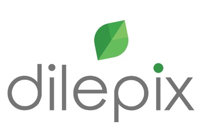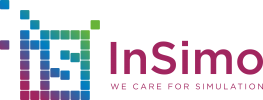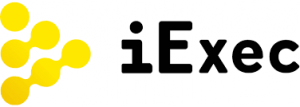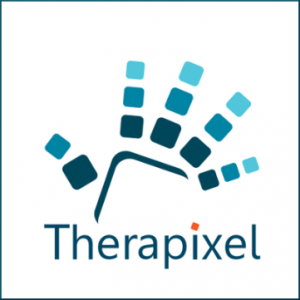![]() Created in 2010 by the Office for Science and Technology at the French Embassy in the United States, NETVA (New Technology Venture Accelerator) is a mentoring program tailored for young, innovative French companies willing to discover or better understand the inner-workings of the North American high-tech market.
Created in 2010 by the Office for Science and Technology at the French Embassy in the United States, NETVA (New Technology Venture Accelerator) is a mentoring program tailored for young, innovative French companies willing to discover or better understand the inner-workings of the North American high-tech market.
NETVA therefore offers 3 major components: training, mentoring and networking.
The objectives:
- Discover the support potential and mechanisms for innovation in North America.
- Analyze the opportunities for development or pre-installation
- Develop academic and industrial partners.
- Acquire an expertise of the North American market in the innovation sector.
Inria partnered with NETVA in 2016, which is a key partnership in Inria’s innovation policy to support business creation and technology transfer. NETVA represents a unique opportunity for the Inria spin-offs to benefit from training and contacts, by building on the expertise of local players specialized in business development in San Francisco, with the support of the Inria@SiliconValley program, but also in other cities like Boston or Washington.
“Made in Inria” start-ups laureate of the NETVA program:
NETVA 2019
- Dilepix develops solutions for the automation and control of equipment and agricultural robots by vision. It algorithms doped with artifical intelligence allow to accurately detest and locate agricultural threats and opportunities. (Chicago)

- Wattson Elements is a start-up which has unveiled technology capable of remotely monitoring boats moored in marinas. The solution named Falco aims to improve maina management and security while promoting the development of new services for boat owners (Boston)

NETVA 2018
 Ekinnox is a start-up whose mission is to democratize the quantified and visual analysis of walking rehabilitation by developing a simple, fast and accessible solution. (Boston)
Ekinnox is a start-up whose mission is to democratize the quantified and visual analysis of walking rehabilitation by developing a simple, fast and accessible solution. (Boston) InSimo develops medical simulation software that allows surgeons to learn with virtual anatomy. Biomechanical modeling makes it possible to reproduce the realism of organs and interactions as in a real operation. (San Francisco)
InSimo develops medical simulation software that allows surgeons to learn with virtual anatomy. Biomechanical modeling makes it possible to reproduce the realism of organs and interactions as in a real operation. (San Francisco)
NETVA 2017
 iExec: iExec aims at providing distributed applications running on the blockchain a scalable, secure and easy access to the services, the data-sets and the computing resources they need. This technology relies on the Ethereum smart contracts and allows building a virtual Cloud infrastructure that provides high-performance computing services on demand. iEx.ec leverages a set of research technologies that have been developed at the INRIA and CNRS research institutes in the field of Desktop Grid computing. The idea of Desktop Grid (aka Volunteer Computing [BOINC]) is to collect the computer resources underutilized on the Internet to execute very large parallel applications at the fraction of the cost of a traditional supercomputer. (San Francisco)
iExec: iExec aims at providing distributed applications running on the blockchain a scalable, secure and easy access to the services, the data-sets and the computing resources they need. This technology relies on the Ethereum smart contracts and allows building a virtual Cloud infrastructure that provides high-performance computing services on demand. iEx.ec leverages a set of research technologies that have been developed at the INRIA and CNRS research institutes in the field of Desktop Grid computing. The idea of Desktop Grid (aka Volunteer Computing [BOINC]) is to collect the computer resources underutilized on the Internet to execute very large parallel applications at the fraction of the cost of a traditional supercomputer. (San Francisco) Lybero.net: The goal of Lybero.net, the brand-new startup from Inria Nancy – Grand Est, is to make the implementation of corporate data encryption simpler and more accessible. The Lybero.net project was born of necessity. “As the Information Systems Security Manager (ISSM) at Inria, I sought to expand the encoding of hard disks. I had to manage a multitude of different data encryption keys and passwords. I was looking for an existing solution that could ensure secure data storage but there wasn’t one, so I decided to develop my own tool.” explains Bertrand Wallrich. If someone who has encoded their disk forgets the password used to unlock it, the data will be irretrievable. “Most users try to memorise their password, but some write it down on a Post-it that they tuck away in a drawer or under their computer keyboard, which is not very secure. Also, the ISSM must be able to obtain the key to access encrypted data if he is required to do so.” Effectively, the ISSM has to be able to retrieve such data if the police ask him to or if a colleague goes absent. More here. (Washington D.C.)
Lybero.net: The goal of Lybero.net, the brand-new startup from Inria Nancy – Grand Est, is to make the implementation of corporate data encryption simpler and more accessible. The Lybero.net project was born of necessity. “As the Information Systems Security Manager (ISSM) at Inria, I sought to expand the encoding of hard disks. I had to manage a multitude of different data encryption keys and passwords. I was looking for an existing solution that could ensure secure data storage but there wasn’t one, so I decided to develop my own tool.” explains Bertrand Wallrich. If someone who has encoded their disk forgets the password used to unlock it, the data will be irretrievable. “Most users try to memorise their password, but some write it down on a Post-it that they tuck away in a drawer or under their computer keyboard, which is not very secure. Also, the ISSM must be able to obtain the key to access encrypted data if he is required to do so.” Effectively, the ISSM has to be able to retrieve such data if the police ask him to or if a colleague goes absent. More here. (Washington D.C.)
NETVA2016
- ANATOSCOPE is a project set up jointly by François Faure, an Inria researcher and a professor at the CNRS, Frederick Vanmeer, a PhD in robotics, Olivier Palombi, a neurosurgeon and professor of anatomy at the Grenoble CHU (University Hospital Centre) and Benjamin Gilles, a researcher with the CNRS. The business offers orthodontists and orthopaedists the possibility of simulating and developing medical treatments and appliances using digital 3D clones generated from patients’ medical data.
 THERAPIXEL: Founded by Olivier Clatz from Asclepios team and Pierre Fillard from Parietal team, THERAPIXEL offers a flexible medical imaging solution that can be adapted to different locations and users. The business has just raised €600,000 to internationalise its Fluid application, which, among other things, uses contactless visual recognition to allow surgeons to access the medical images they need in the operating theatre.
THERAPIXEL: Founded by Olivier Clatz from Asclepios team and Pierre Fillard from Parietal team, THERAPIXEL offers a flexible medical imaging solution that can be adapted to different locations and users. The business has just raised €600,000 to internationalise its Fluid application, which, among other things, uses contactless visual recognition to allow surgeons to access the medical images they need in the operating theatre.- MAKITOO was developed by the Spirals team. Nicolas Petitprez, an Inria engineer, has been appointed CTO of the company alongside CEO Emmanuel Dissoubray. After several years of research at ILIS (Lille Institute of Health Engineering) and months of development at the TechnoFounder start-up studio (a prize-winner in the national i-lab innovation challenge), the new business is now marketing a “bug reporting” solution that can be used to manage IT issues in Android mobile apps. The start-up has already raised €450,000€ this year to push sales development and support new languages.
- PIXYL emerged from the work of the Mistis team with Senan Doyle, an Inria post-doc and engineer, as CEO. The business provides a neuro-imaging application that automatically analyses lesion loads using brain MRI. The aim is to improve decision taking during clinical trials and in routine clinical practice. The application is currently being used to provide precise and reliable monitoring of developing pathologies, with or without processing.
- REGAIND was already a prize-winner in the Worldwide Innovation Challenge! Founded by Guillaume Seguin of the Willow team and by Arnaud Laurenty, the company proposes an artificial intelligence application that automatically sorts and classifies photo collections in order to simplify and expand their use.
NETVA 2015
- XtremeLogic is a new start-up offering next generation green high-performance computing on FPGAs with up to 100 times better performance/cost ratio than existing solutions. The start-up markets are: financial (risk analysis, data processing, HFT), military, security, numerical simulations (weather, aerodynamics, meteorological etc.), automotive (driver assistance), industrial (image analysis of the products on the production line) and many others.
Related news
- Interview: NETVA 2017 laureate Gilles Fedak, CEO of iExec, presents his start-up
- Interview: NETVA 2017 laureate Arnaud Laprévote, CEO of Lybero.net presents his start-up
- NETVA 2017: 2 “made in Inria” start-ups (Lybero.net and iExec) took off for the United States!
- Interview: Olivier Clatz, co-founder of Therapixel and NETVA 2016 laureate
- NETVA 2016: 5 Inria start-ups take off for the United States
- Interview: Alexandru Plesco, CEO/CTO XtremLogic and NETVA 2015 laureate
- Start-up: XtremeLogic among the winners of NETVA 2015 edition